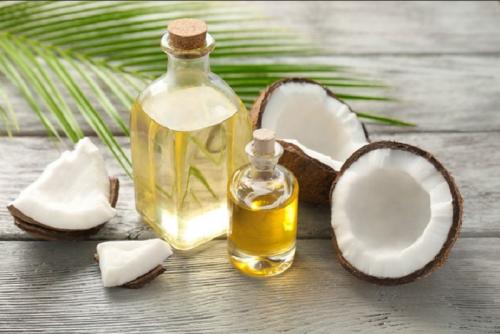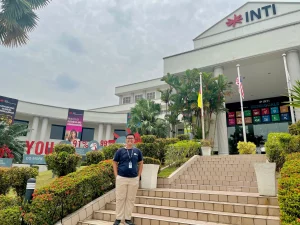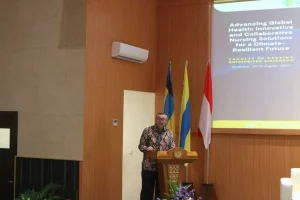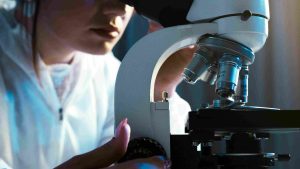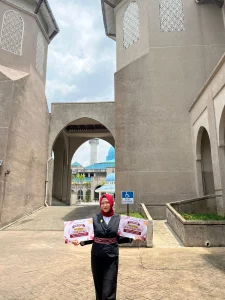Malaria is an infectious disease caused by Plasmodium sp which is transmitted to humans through the Anopheles sp mosquito. Indonesia is a country with the highest incidence of malaria in Southeast Asia, especially in the provinces of Papua, West Papua, and East Nusa Tenggara (NTT), which are endemic areas. The existence of parasite resistance to several antimalarial drugs, including chloroquine, artemisinin, and the combination of artesunate with mefloquine makes it difficult to treat malaria, resulting in death and malaria cases. Malaria infection cause the increasing production of Reactive Oxygen Species (ROS) caused by activated neutrophils and degradation of hemoglobin by the parasite. The increased of ROS increases the vascular permeability due to endothelial damage. A decrease in antioxidant levels at the time of infection causing oxidative stress, therefore antioxidants from outside the body are needed (exogenous antioxidants). Exogenous antioxidants can be obtained from natural ingredients, such as virgin coconut oil (VCO). Pharmacological properties of VCO including antiinflammatory, analgesic, antipyretic, anti-oxidant, antistress, antimicrobial, antiviral, and antiprotozoal properties have been reported. Therefore, this study aimed to find out the antimalarial activity of VCO by evaluating the parasitemia and percentage of inhibition to the growth of parasite in mice infected with Plasmodium beghei ANKA.
After the mice were infected intraperitoneally with 1 × 106 of P. berghei-infected erythrocytes. On the third day after infection, the mice were given treatments with VCO. The doses given were 1 ml, 5 ml, 10 ml per kg body weight. The positive control group were given Dihydroartemisinin-piperaquine phosphate (DHP) 187.2mg/kg BW, while the negative control group were only given sterile water. Treatments were given for 4 consecutive days, followed with parasitemia observation.
This study has proven antimalarial activity of VCO in mice infected with P. berghei ANKA. Parasitemia in mice treated with VCO were lower than that of negative control (NC) group, indicated that VCO was able to inhibit the growth of parasites. Further, the inhibition of VCO in group given 5 ml VCO was higher (48.70) than that in group given 10 ml VCO (33.91%), while in group given 1 ml VCO was lower, only 13.04%. The data, indicated that VCO at the dose of 5 ml/kg BW was more effective to inhibit parasite growth than lower or higher doses. But it did not mean that the higher dose of VCO is toxic, because there was no mouse died due to VCO administration. The effect of VCO on reducing parasitemia was due to the phenol compounds as anti-oxidants that have anti-plasmodium activity which are able to inhibit the growth of parasite. Some phenolic compounds have been tested against P. berghei in mice [15] as well as P. falciparum in vitro.
During malaria infection, the high production of ROS causes the decrease in antioxidant levels in the body, causing oxidative stress, which can cause high levels of free radicals. Plasmodium is sensitive to oxidative stress; however, the parasite is susceptible to free radicals and antioxidants. When free radicals in the body is excessive, additional antioxidants are needed. Exogenous antioxidants can be obtained from natural ingredients. VCO can be a source of exogenous antioxidants due to the antioxidant activity of VCO, which was contributed majority by phenolic acids content. Besides, exogenous antioxidants can be obtained from food intake, such as vitamin C, vitamin E, flavonoids, and carotenes. Antioxidants have redox properties that are able to absorb and neutralize free radicals, reactive oxygen species and reduce peroxidation. Antioxidants play a role in countering the effects of free radicals by inhibiting fat peroxidation that cause erythrocyte cell wall stronger and not easily ruptured. Antioxidant content causes a decrease of ROS led reduction in the lipid peroxidation process and a decrease in malonealdehyde (MDA), and maintains the amount of endogenous antioxidant enzymes (superoxide dismutase).
VCO also contains flavonoids that are able to inhibit oxidation reactions. Flavonoid is also found in medicinal plants with antimalarial activity. In an in vitro study, flavonoids are strong inhibitors of lipid peroxidation, as scavengers of reactive oxygen or nitrogen species, and are also capable of inhibiting the activity of lipoxygenase and cyclooxygenase enzymes. Alkaloid content in VCO is high. The antioxidant effect of alkaloid seemed to be higher than that of phenols depend on its source. Alkaloid can be isolated from various parts of medicinal plants and many of them have been reported to have anti-malarial activity.
VCO has been well known as a dietary supplement with aim of reducing the risk of certain non-communicable diseases (NCDs). The VCO has also been proved to have hepatoprotective effect in mice infected with P. berghei ANKA. Furthermore, oxidative damage by free radicals is one of the causes of pathological abnormalities in malaria patients. Therefore, the use of antioxidant therapy as a supportive therapy is one of alternatives in supporting the healing process of malaria patients and may reduce various risks that could potentially occur in patients.
The production of VCO can be different in the origin of raw materials as well as their preparation that is resulting in different quality and quantity of contents, therefore the effect of different VCO found in the market may give different results. However, in this study, VCO purchased at ordinary drugstores can have a good effect on malaria in mice. This suggests that this research can be continued, for example against other malaria parasite species or against other diseases.
Author: Heny Arwati
Details of research can be viewed here: https://www.ijscia.com/wp-content/uploads/2022/03/Volume3-Issue2-Mar-Apr-No.239-193-196.pdf


